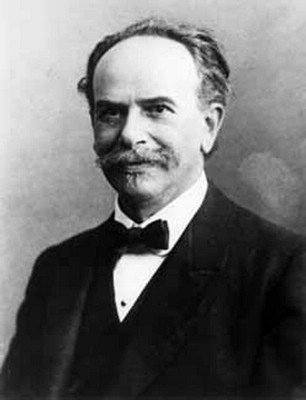Historical-Particularism - as exemplified by Franz Boas (1858 -
1942)
|

|
|
Franz Boas
|
German-born and educated in physics, his doctorate was on the color of
ocean
water in the arctic, which brought him to Central Eskimo and later the northwest coastal
Indians (see bibliography below). Boas' scientific training would help focus his research on the empirical details
of ethnography. Unlike previous theorists, Boas reacted against the "grandiose
armchair theories and theorist," many of whom were overtly racist in nature.
He
challenged the "comparative method," "psychic unity," "universal
laws," "environmental, geographic or economic determinism," "prime
movers" as causes of culture change, i.e., no nomothetic laws. He
was also at the forefront of challenging fundamental racism that characterized
much of his contemporary society. And Boas stressed the
need for solid, intensive and long-term field work which included learning
of the language of those you study, all within a grounding of the research in
the particular
history of the society. Only then could valid and accurate
descriptions be put forth for a given culture. With this emphasis, Boas was responsible for training a
large following of ethnographers, including Kroeber, Lowie, Spier, Wissler, Mead, Radin,
Bunzel, Sapir, Benedict, Herskovits, Hoebel, and is thus considered the "Father of
American Anthropology."
Summary of Main Point, Problems, and Contribution:
-
Main Point:
- Focus research on specific society, its whole, and its own history, i.e., historic
particularism, richly detailing its cultural traits and characteristics into descriptive
ethnography
-
Problems:
-
Stimulated development of little new theory
-
In focusing on "elders," resulted in a "static view" of cultures,
and didn't develop a sense of cultural dynamics and continuities.
-
Contribution:
-
Value of long-term, intensive Field Work, including learning the
language of those you study.
Partial Boas Bibliography:
- n.d. "The relation of Darwin to anthropology," notes for a
lecture; Boas papers (B/B61.5) American Philosophical Society, Philadelphia.
- 1888 The Central Eskimo. Bureau of American Ethnology, 6th Annual Report.
Smithsonian Institution.
- 1902 Tsimshian Texts. Bureau of American Ethnology, Bulletin 27.
Smithsonian Institution.
- with George Hunt. 1905 Kwakuitl Texts. Jesup North Pacific Expedition, volume 3.
- with George Hunt. 1906 Kwakuitl Texts - Second Series. Jesup North Pacific Expedition, volume 10.
- 1909-10 Tsimshian Mythology. Bureau of American Ethnology, 31st Annual Report.
Smithsonian Institution.
- 1910 Kwakuitl Tales. Columbia University Contributions to
Anthropology, volume 2.
- 1911 The Mind of Primitive Man
- 1912 Changes in the Bodily Form of Descendants of Immigrants.
American Anthropologist, Vol. 14, No. 3, July-Sept, 1912.
- 1912 The History of the American Race. Annals of the New York
Academy of Sciences, Vol. XXI, pp. 177-183.
- 1914 "Mythology and folk-tales of the North American Indians."
Journal of American Folklore, Vol. 27, No. 106, Oct.-Dec. pp. 374-410.
- 1922 Report on an Anthropometric Investigation of the Population of the
United States. Journal of the American Statistical Association, June
1922.
- 1917
Folk-tales of the Salish adn Sahaptin tribes (DJVU), Washington State
Library's Classics in Washington History collection., Published for the
American Folk-Lore Society by G.E. Stechert.
- 1922 The Measurement of Differences Between Variable Quantities.
Quarterly Publication of the American Statistical Association, December,
1922.
- 1927 The Eruption of Deciduous Teeth Among Hebrew Infants. The
Journal of Dental Research, Vol. vii, No. 3, September, 1927.
- 1927 Primitive Art
- 1930 Religion of the Kwakuitl Indians. Columbia University Press.
- 1932 Bella Bella Tales. Memoirs of the American Folklore Society, Volume 52.
- 1935 The Tempo of Growth of Fraternities. Proceedings of the
National Academy of Sciences, Vol. 21, No. 7, pp. 413-418, July, 1935.
- 1940 Race, Language, and Culture
- edited by Helen Codere, 1966 Kwakuitl Ethnography. Chicago: University of Chicago Press.
return to schedule